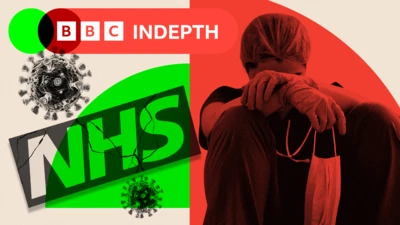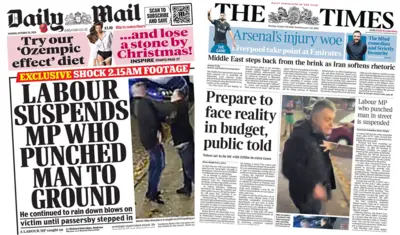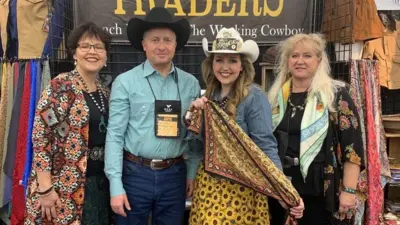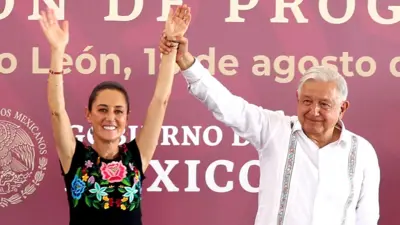We've updated our Privacy and Cookies Policy
We've made some important changes to our Privacy and Cookies Policy and we want you to know what this means for you and your data.
Are celebrities gagging the media more than ever?
Gagging the media, or properly protecting private lives? We're hearing about injunctions and so-called super-injunctions more than ever, but are they changing the way celebrities are reported? The В鶹№ЩНшКЧТіИлїЪ's legal affairs correspondent Clive Coleman has been finding out...
Are the rich and powerful increasingly using injunctions and so-called super-injunctions to gag the press from publishing stories about their private lives?
No one really knows, especially in the case of 'super-injunctions', where the media is prevented from revealing even the fact that an injunction has been granted.
The media, and in particular the tabloid press, are extremely worked up about the issue of injunctions. They see these protective court orders as a bar to free speech.
To understand why the debate is so heated at the moment, we need to trace some of the history of the UK's current privacy law.
In the late 1980s, tabloid journalists used long-lens cameras to photograph the television presenter Russell Harty in his hospital bed as he lay dying.
In 1990 a team from the Sunday Sport, disguised as medical staff, managed to photograph and speak to the 'Allo 'Allo star Gorden Kaye as he lay in his hospital bed after brain surgery following a car crash.
There was great public concern. Kaye tried to sue the Sunday Sport. He got as far as the Court of Appeal, which lamented the fact that the UK didn't have a law of privacy, and expressed the hope that parliament might legislate to create one. His legal action failed.
Public interest
Parliament never did legislate. But in 2000 the Labour government passed the Human Rights Act, which wrote into UK law the European Convention on Human Rights. It established two very powerful, but contradictory rights.
The right to private and family life under Article 8 - the right to privacy. And the right to Freedom of Expression under Article 10 - the right that allows the press to publish.
The battle lines were drawn between the rich and powerful who wanted to protect their privacy on the one hand, and a hungry media - and in particular the tabloid press - which wanted to write about it on the other.
The law was developed by judges through cases involving the supermodel Naomi Campbell and the former motorsport boss, Max Mosley. It established that if a person has a reasonable expectation of privacy in a particular activity, eg undergoing drug treatment or having an affair, the press can only publish the story of them engaging in that activity, if there is a genuine public interest in doing so.
Running alongside the developing law was the injunction - and its big brother, the super-injunction, whereby celebrities and public figures could get an interim injunction to stop a story before it is published.
The injunction will generally last until any trial for breach of privacy. However, in order to get one, the celebrity has to provide enough evidence to satisfy a judge that they would be likely to win at trial and obtain a full injunction.
It isn't surprising that, as these injunctions have been increasingly used by the rich and powerful to prevent publication of stories about their private lives, they have proved unpopular with the press.
Total lockdown
Super-injunctions have been around for many years. Their purpose is to protect a person or organisation when, if they were not granted, the whole purpose of the injunction would be frustrated.
They are especially effective in privacy cases where simply allowing the public to know that a particular celebrity has obtained an injunction, might lead to mass speculation (especially online) about the facts, identification of the activity the celebrity has been engaging in and thus full revelation of the story. A super-injunction is the closest a celebrity can get to a total lockdown.
However, in recent cases involving Chelsea and England footballer John Terry and Take That singer Howard Donald, the courts have reaffirmed that super-injunctions are to be used extremely rarely, and they have underlined the importance of open justice. That has not placated the print media though, who continue to oppose the use of injunctions which they feel gag them from publishing.
In May a committee established by the Master of the Rolls, Lord Neuberger, will report on the use of super-injunctions. It will be interesting to see whether it pleases the print media, or delights the rich and powerful.
Top Stories
More to explore
Most read
Content is not available








